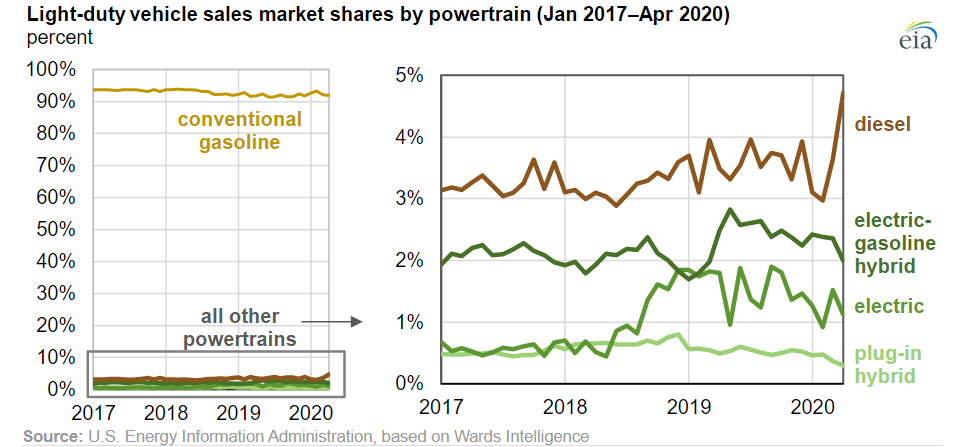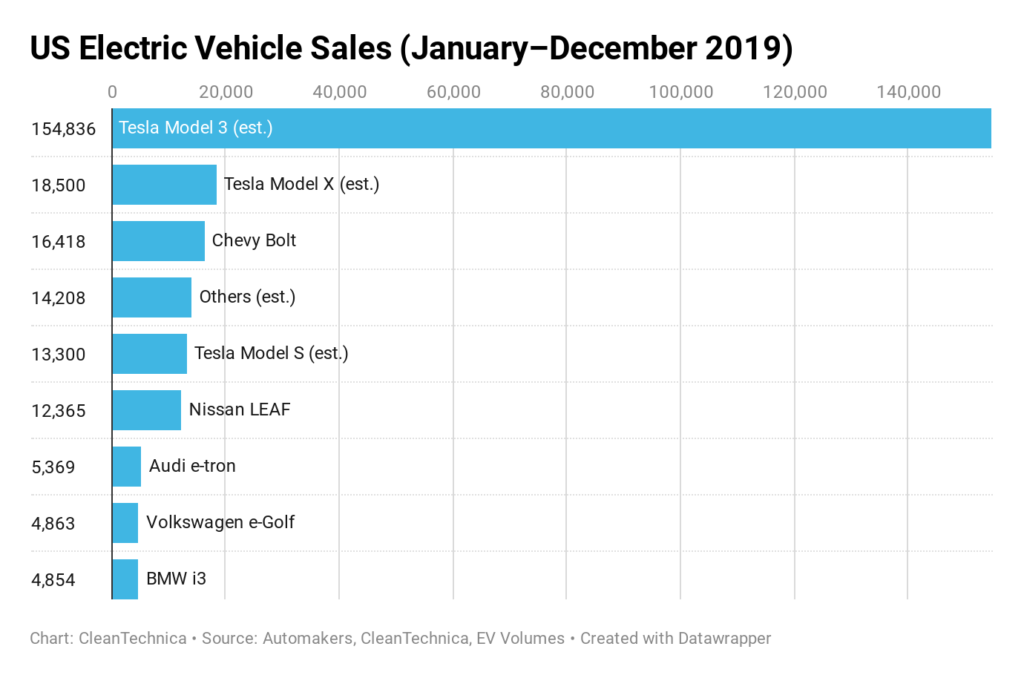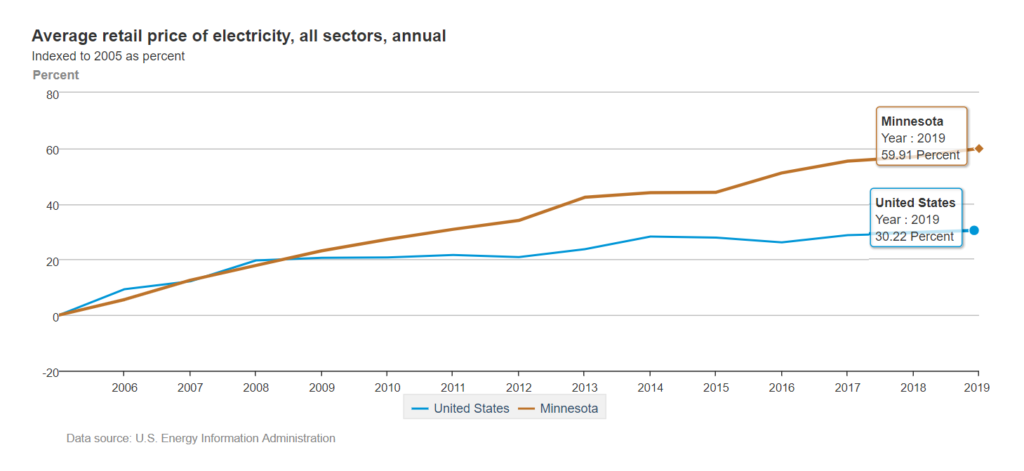Despite Subsidies, Electric Car Sales Remain Below 2 Percent of National Auto Sales
Advocates for Governor Walz’s proposal to force California mandates for low emission vehicles (LEVs) and zero emission vehicles (ZEVs) on Minnesotans claim that there is a huge demand for electric vehicles (EVs) in Minnesota, but they simply aren’t being offered in large enough numbers to meet consumer demand. However, federal auto sale data show these claims are simply wrong.
Despite generous $7,500 federal subsidies for customers who purchase electric cars made by certain manufacturers, it appears the demand simply isn’t there. This fact isn’t likely to change even if the proposed ECO Act, which will be heard in the Minnesota State Senate this Thursday, is adopted. The ECO Act would force all Minnesotans to subsidize EVs through higher energy bills, essentially requiring everyone to pay more to benefit the small portion of the population that actually wants to drive an EV.
The graph below is from the U.S. Energy Information Administration (EIA) and it shows that more than 90 percent of all light-duty vehicle sales in the United States run on gasoline, whereas electric cars accounted for just 1.5 percent of new vehicle sales.

The interesting thing about the electric car market is that it utterly dominated by Tesla. In fact, the graph below shows EV purchases by model for the year 2019. The Tesla Model 3 accounted for 63 percent of sales, all by itself, and as a whole, Tesla accounted for 78 percent of 2019 EV sales. The Chevy Bolt, the most popular non-Tesla EV, was only 6.7 percent of the EV market last year.
This means that the generous subsidies that have been lavished upon EV purchasers from the federal government, and the subsidies you will pay for if the ECO Act is passed, would largely be used to help wealthy people purchase a new Tesla.
Electric vehicles deserve every chance to compete in the the free market, but neither the federal nor the state government should be adopting policies that unfairly promote them at the expense of other methods of transportation.
As we’ve seen from Minnesota’s 2007 renewable energy mandate, which has caused Minnesota’s electricity prices to increase 30 percent faster than the national average, Minnesota politicians are exceptionally bad at picking winners and losers in the energy space. These bad choices result in higher costs for Minnesota families and businesses.

There is no way for Minnesota lawmakers to remedy the unfair federal subsidies electric cars receive, but they can do their part by removing the ability for the ECO Act to subsidize the purchase of electric vehicles in Minnesota because everyday Minnesota families should not be forced to pay more to keep the lights on and heat their homes so they can pay for someone else’s electric car.